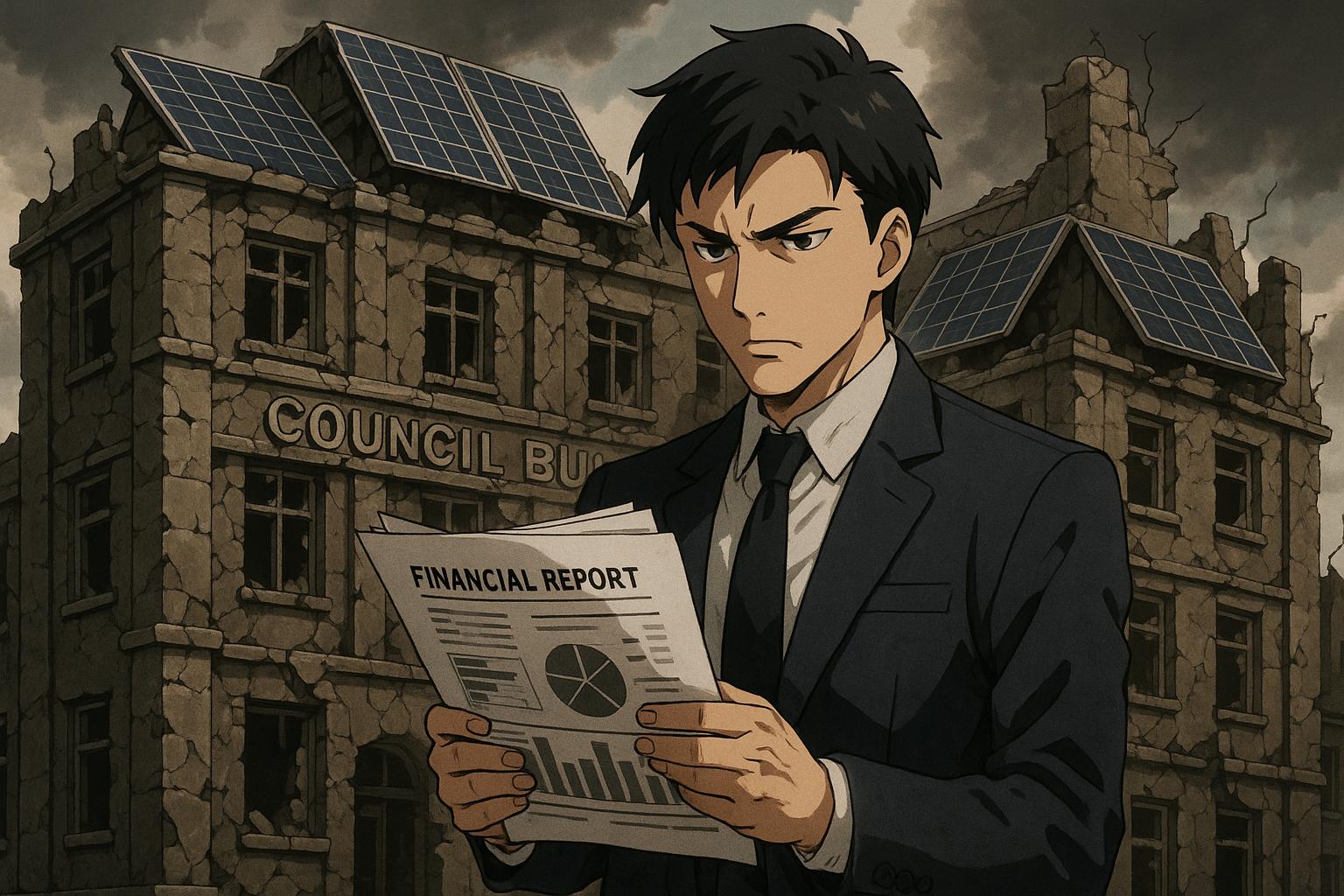An investigation by the Serious Fraud Office (SFO) into Thurrock Council's significant financial turmoil could hold key implications for local governance across the UK. The council, which plunged into £1.5 billion of debt largely due to disastrous investments in solar farms, is now under scrutiny for its financial decisions made between 2016 and 2020. The SFO's investigation follows the council's eventual bankruptcy in December 2022, alongside a liquidation process for Rockfire Investment Finance Plc, the firm overseeing these investments.
As part of the inquiry, section 2 notices have been issued to banks and various financial institutions demanding pertinent documents related to the investment dealings. This action has been regarded as a crucial step in addressing allegations of mismanagement and potential criminality surrounding the investment schemes that promised returns of 3-6% but ultimately led to substantial losses. Prior to its insolvency, Thurrock Council had invested approximately £270 million in Rockfire’s renewable energy bonds, a move that has since ignited widespread concern regarding the risk-taking behaviour of local councils that have increasingly resorted to speculative investments amid dwindling central government support.
Speaking about the investigation, Nick Ephgrave, Director of the Serious Fraud Office, indicated that their actions represent a pivotal phase in understanding the scope of the suspected fraud. Meanwhile, Victoria Holloway, Thurrock Council's cabinet member for Place and the Environment, emphasised the administration's commitment to full transparency and cooperation with the investigation. She asserted, “This represents a vital step toward securing justice and ensuring accountability on behalf of our communities.”
The repercussions of Thurrock's financial mismanagement highlight deeper systemic issues within local government funding and oversight. Following the council's implosion, discussions of inadequate regulatory frameworks have surfaced, particularly in light of the government's rejection of a public inquiry despite public outcries for transparency regarding the council's spending practices and strategic decisions. Critics have pointed to the abolition of the Audit Commission and a steady decline in local government funding since 2010 as contributing factors to a growing trend of excessive risk-taking among local authorities.
Adding to the complexity of the situation, Thurrock has initiated civil claims against Liam Kavanagh, the businessman linked to Rockfire, alleging misuse of council funds and manipulation of investment assumptions. There are allegations that a substantial portion of the misallocated funds was used to purchase luxury items, further questioning the ethical management of taxpayer money. Kavanagh has denied the allegations, calling into question the jurisdiction of the court in this matter.
As the council seeks to recover some of the lost public funds—through both legal channels and potential asset sales—it has recently sold part of its solar portfolio for £700 million, which will assist in repaying its debts. This sale represents a crucial step toward financial stability, although significant challenges remain.
Despite the current administration's efforts to retrieve lost funds and restore financial health, the ongoing crisis reflects a broader dilemma faced by local councils across the UK, as many navigate precarious financial landscapes amid increased scrutiny. The outcome of the SFO's investigation could set significant precedents for local governance and investment strategies moving forward.
📌 Reference Map:
Source: Noah Wire Services
